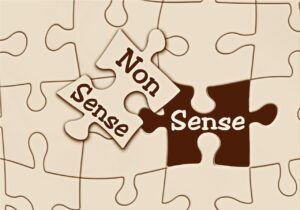In today’s digital age, anyone with internet access can share their thoughts with a global audience. While this is a powerful tool for communication and expression, it has also opened the door to a growing legal issue; online defamation. The evolution of the world as a global community as well as the attendant increase in daily social interaction has resulted in an explosion of cross-continental communication in recent times. The 21st Century internet user is at risk on the internet now more than ever. Although the internet has been praised for being at the fore of easy dissemination of information, it has also been used as a negative tool by many, some deliberately and some negligently. It should be noted that in this day of widespread online presence, so much is being written and shared daily, thus, differentiating between what is harmful or not, what is ethically acceptable or not, and what crosses the societal norm of tolerance, is almost impossible. When does a post go from “funny and playful” to “an attack on a person’s reputation”? Thus, what starts as a joke can metamorphose into something much more complex and crystalize into a Law Suit. This is further accentuated by the fact that although a majority of the citizenry may view posts on social media as “harmless” or “funny”, the law may assume a different posture on such issues.
MEANING OF DEFAMATION
Defamation according to the Black’s Law dictionary refers to a malicious or groundless harm to the reputation or good name of another by the making of a false statement to a third person. (Blacks law dictionary 10th edition). A defamation matter is also defined in section 373 of the criminal code as;
“…a matter likely to injure the reputation of any person by exposing him to hatred, contempt, or ridicule, or likely to damage any person in his profession or trade by any injury to his reputation.
Such matter may be expressed in spoken words or in any audible sounds, or in words legibly marked on any substance whatever, or by any sign or object signifying such matter other than by words, and may be expressed either directly or by insinuation or irony.
It is immaterial whether at the time of the publication of the defamatory matter, the person concerning whom such matter is published is living or dead:
Provided that no prosecution for the publication of defamatory matter concerning a dead person shall be instituted without the consent of the Attorney‐General of the Federation”.
ONLINE DEFAMATION
The Cybercrime (prohibition, prevention) Act 2015 which became effective on May 15, 2015, defined online Defamation under section 24 as follows:
“any person who knowingly sends a message or other matter by means of computer systems or that he knows to be false, for the purpose of causing annoyance, inconvenience danger, obstruction, insult, injury, criminal intimidation, enmity, hatred, ill will or needless anxiety to another or causes such a message to be sent commits an offence under this Act and shall be liable on conviction for a fine of not more than N7,000,000.00 or imprisonment for a term of not more than three years or to both such fine and imprisonment” (Sec. 24 Cybercrime (prohibition, prevention) Act 2015).
From the definitions above general defamation involves false statements made in print, broadcast, or spoken word that harm someone’s reputation while Online Defamation involves false statements made on digital platforms like social media, blogs, or websites. Traditional defamation cases involve newspaper articles, magazines, letters to the editor, and television and radio broadcasts. Online defamation happens on various platforms, including: Facebook, X (formerly Twitter), Instagram, TikTok, NextDoor, LinkedIn, Reddit, Yelp and other review sites, and blogs etc. Defamation is a civil wrong (called a “tort”) in most states you can sue someone for money over it. But harassment and cyberbullying are crimes that can lead to a jail or prison sentence. Online defamation conforms to the same standard of proof as the generally known type of defamation.
Online Defamation Versus Traditional Defamation
Generally, the tort of defamation primarily occurs when someone makes a false statement about another person in such a way that damages their reputation. This can take two main forms:
- Libel: This includes Written or published defamation, including social media posts, blogs, and videos.
- Slander: This involves spoken defamation, such as verbal accusations against another which causes the other party damages to his reputation .
In the past, defamation primarily occurred in newspapers, on television, or during public speeches. However, with the rise of the internet, a growing specie of defamation commonly known as online defamation has become widespread. This type of defamation refers to defamatory statements made on platforms such as Twitter, TikTok, Facebook, Instagram, blogs, and WhatsApp fora. Furthermore, Online Defamation on these platforms can occur by way of tweets,videos or comments, likes and shares thereby leading to a possibility of legal action against the perpetrator as seen in the case of Ibrahim v Gwandu. While the core concept of defamation remains the same, the online environment creates unique challenges which include;
- Global Reach: A defamatory online post can be accessed worldwide, increasing the potential for reputational damage.
- Permanence: Online content can remain visible indefinitely unless removed.
- Anonymity: People can make defamatory statements anonymously, making it harder to identify the source.
- Virality: Online defamation can spread rapidly through shares, retweets, and reposts, amplifying its impact.
Legal Issues Arising From Online Defamation
For a case of online defamation to be legally actionable, certain elements must be present as follows;
- False Statement: The statement must be untrue and presented as a fact, not an opinion or joke.
- Publication: The defamatory content must be shared with at least one other person besides the aggrieved party. In Okotie v Olughor, the court established that defamation must be proved by showing that the published statement was false, referred directly to the plaintiff and was heard or read by a third party.
- Identification: The person being defamed must be identifiable from the defamatory content as held in the case of Abalaka v Akinsete.
- Damages: The defamatory statement must harm the person’s reputation, cause financial loss, or inflict emotional distress.
Jurisdictional Issues on Online Defamation:
Determining jurisdiction in online defamation cases can be complicated. Since the internet knows no borders, courts often consider several factors in deciding which court has jurisdiction to entertain a case of online defamation;
- Where the statement was made, that is, the location of the Defendant.
- Where the Claimant resides.
- The location where the defamatory post was accessed. For example, if a defamatory post is made in the United States about a Nigerian businessman and is widely read in Nigeria, the Nigerian courts may have jurisdiction because that is where the harm occurred.
The issue of Online Defamation is new to Nigeria’s legal system with only a few cases as precedence, however, in other common law jurisdictions, the concept is gathering a following. A question that arises is where and when can an aggrieved party take action in cases of online defamation. For an online publication to become actionable, the following factors must co-exist simultaneously, that is:
- The online defamatory statement must be a lie.
- There must be actual harm caused by the online defamatory statement.
- There must be evidence to prove the online defamatory statement.
Defamation becomes actionable when:
- A false statement is made about someone.
- The statement is published to a third party.
- The statement causes harm to the person’s reputation.
Determining jurisdiction can be tricky in online defamation cases. Courts may consider:
- The location where the defamatory statement was made.
- The residence of the person who made the statement.
- The location where the statement was read or downloaded.
- The place where the damage occurred.
It is pertinent to note that each state has its own defamation laws, but the basic principles are the same no matter where you file your lawsuit. A plaintiff suing for online defamation typically must show that the defendant: made a false statement of fact, the statement was made to someone other than the plaintiff, the statement harmed the plaintiff’s reputation, and the defendant was “negligent” (careless) about whether the statement was true or false. Public figures, like politicians and celebrities, have to show more than negligence. Public figures have to show that the defendant acted with “actual malice.” Actual malice means the defendant made a false statement knowing it was false or with reckless disregard for the truth of the statement.
Defamation is harder to prove than it may seem at first glance. Remember, the statement has to be a false statement of fact. Many defendants argue that what they said about the plaintiff wasn’t defamatory because it was true or that it was an opinion and not a fact. A defendant might also argue that the plaintiff’s reputation was already so bad that the defendant didn’t harm it. To prove defamation online, the plaintiff must show:
- The statement was false.
- The statement was published to a third party.
- The statement caused harm to the plaintiff’s reputation.
In order to prove online defamation, the party claiming defamation must prove or establish that the defamatory information was accessed and downloaded by identifiable individuals within the court’s jurisdiction. The law will not presume that the words were actually read, the readers must be identifiable persons whom may be called upon as witnesses if the need arises. Essentially, the Plaintiff bears the burden of ensuring he proves that the defamatory statement was seen or read by a third party. See the case of Mohammed Hussein Al Amoudi v. Jean Charles Brisard and Another where the court held thus “the Plaintiff bears the burden of proving that the words complained of were read or seen by a third party. From that proposition it would appear to follow that, in the case of an Internet libel, it would be for the Plaintiff to prove that the material in question was accessed and downloaded.”
You’ll also need to preserve evidence for your defamation law suit. For example:
- Take screenshots of the defamatory remarks.
- Keep a list of URL links to the defamatory remarks.
- Keep a record of the financial impact the defamation has had on you, like receipts, pay stubs, and medical bills.
- Talk to witnesses who have read or viewed the offending posts.
Don’t delay in gathering evidence. If you wait too long, you risk losing what you need to prove your claim.
It is also pertinent to mention that for the Court to have jurisdiction, the defamatory statement must have been accessed and downloaded within the court’s jurisdiction. In the Indian case of Lankesh v Shirvappa, (1996) (1) ALT Cri 231 the Supreme Court of India stated that the test for the jurisdiction of the Court in online defamation cases is whether such statement has been downloaded by an independent third party. The mere fact that a defamatory statement was published on the internet does not in itself mean that defamation has occurred, it must fulfil the condition enumerated above. The effect of this, therefore, is that in order to rob the Court with jurisdiction, the aggrieved party must show conclusive evidence that the online statement constituting defamation has actually been downloaded by a third party, where this is absent, then the Court does not have jurisdiction.
In Nigeria, according to the various rules of Court, the Court with the requisite jurisdiction is the one where the defendant resides or carries on business. See Order 3 rule 4 of the High Court of the Federal Capital Territory (Civil procedure) Rules, 2018. The same is provided for in Order 4 Rule 4(1) of the High Court of Lagos State Civil Procedure Rules, 2019. Given the fact that online defamation is still an emerging area of tort law in Nigeria, there is still a very shallow depth from which we can draw judicial authorities. Similarly, in Nigeria, it is the High Court of the State that has jurisdiction to adjudicate over defamation cases and thus by implication, online defamation matters also.
However, in some jurisdictions such as India, a common law country, the Supreme Court has held that “Territorial jurisdiction does not remain confined to the place of actual defamation…the jurisdiction would be at both the places i.e.at the place where the actual defamation takes place and the place where such defamatory material is transmitted through website, telecast, etc.” In some parts of Europe such as Italy, the Court with the jurisdiction to hear online defamation cases is the Court where the defendant resides. Courts in Canada and America also adopt the reasoning of the Supreme Court of India to the effect that it is where the damage occurred the most, or where the defendant resides. It is, therefore, safe to assert that the attitude of the Court is that in matters of online defamation, the jurisdiction of the Court is not restricted to any one particular territory. This, however, causes the problem of forum shopping as litigants can choose to institute the matter in a jurisdiction either with stricter punishment or compensation standards. A harmonization of this jurisdiction by the enactment of specific provisions in our laws will quell these brewing issues.
Who Do You Sue in An Online Defamation?
There is a lot of question on who to sue for defamation made on social media and also who can sue. Plaintiffs who have suffered online defamation often go after their Internet Service Provider (ISP) or the website that hosts the defamatory content at issue, like Facebook or Google. That’s because these companies are wealthy and can afford to pay the plaintiff’s damage demand in defamation cases. In the case of Omega Bank Plc v. Govt., Ekiti State, (2007) 16 NWLR (Pt. 1061) 445 the Court clearly stated that:
“Any natural or juristic person (except a government entity) may sue for defamation. An action for defamation is a purely personal action, and the proper person to sue as the plaintiff is the person defamed, and the proper person to be sued as defendant is the person who published the defamatory words or caused them to be published.”
If you’ve been defamed online, it’s natural to want to sue the internet service provider ISP of the website that hosts the defamatory content, like Meta (Facebook), X (formerly Twitter), or Yelp. After all, a big tech company is likely to have deeper pockets than the internet troll who is defaming you and you might genuinely believe that ISPs should bear some responsibility for the content on their sites.
Exceptions:
There are some exceptions to defamation claims, such as:
- Statements made in good faith.
- Statements made in the public interest.
- Statements that are opinions rather than assertions of fact.
The Nigerian courts have accepted the following defences:
- You must prove that the statement made is true in substance and fact, irrespective of whether the statement was made out of malice or as fair comment. The duty of proving the truth of the statement is on the defendant.
- The law allows specific people such as judges or members of the National Assembly to speak or write without fear or restraint even at the expense of the reputation of another.
- Fair Comments. If the statement complained of is made in good faith or a subject of public interest, it is a fair comment. However:
- The statement must be an opinion not a statement of fact.
- The facts on which the comment is made must be true.
- The comment must be free of bias or impartial.
- The comment must not be actuated by malice.
- The comment must concern something of legitimate public interest.
Criminalisation of Defamation:
Over time, there have been various legislation in Nigeria which criminalizes defamation. The Criminal Code, the Penal Code, as well as the Cybercrimes Act provides for various criminal limitations to the exercise of freedom of expression, and maps out various punishments for defamation such as fines and imprisonment.
However, as we reviewed in the section can freedom of expression be limited? the three-part test requires that any form of limitation must conform to the tests of:
- being a valid law,
- must be for a legitimate reason, and
- has to be necessary and proportional.
With this test in mind, the African Commission on Human and Peoples’ Rights stated that criminal defamation violated freedom of expression and impeded development in democracies. It noted that such laws “constitute a serious interference with freedom of expression, impeding the public’s right to access information, and the role of the media as the watchdog, preventing journalists and media practitioners from practicing their profession in good faith, without fear of censorship”. It further recommended that countries with criminal defamation laws should cancel such laws in order to ensure the promotion of freedom of expression. However, this is a soft law and is not compelling on the member countries. (Action for justice, defamation and freedom of expression, network of university legal aid institution (2017).
Judicial View on Social Media Defamation
In Nigeria, the Court have made salient decisions on defamatory Matters especially as it pertains to social media. Some of these cases are:
ISIKWENU & ANOR v. IROH (2012) LPELR-19796(CA).
Here, the learned Justice succinctly held that:
“The Plaintiff in an action for defamation must not only prove that the Defendant published the defamatory words, he must identify himself as the person defamed. See OGBOMOR v. THE STATE[10].” Per TUNDE OYEBANJI AWOTOYE, JCA
DALUMO VS THE SKETCH PUBLISHING CO. LTD (1972) Legalpedia (SC) 51111)
In this case, the Supreme Court in delivering its judgement, considered whether a particular word is defamatory or not.
“As the law stands, the test of whether words that do not specifically name a plaintiff refer to him or not is this: Are the words used such as, reasonably, in the circumstance, would lead persons who know the plaintiff to believe that he was the person referred to?” FATAYI-WILLIAMS, JSC.
In the case of CHIEF TONY OKOROJI v. ONYEKA ONWENU (2016) LCN/9036(CA) The Court clearly stated when defamation is actionable:
“Defamation/libel is actionable per se, and once there is credible evidence and the Court is satisfied as in the case of the Appellant, that the defamation was established, or proved as required by law, it can find for the Claimant and award damages, as may be appropriate.”
FELANA V VDM (2024).
In September, VDM posted a leaked audio clip of Bobrisky on his Instagram page, in which the crossdresser implicated Falz and his father.
Bobrisky, whose real name is Idris Okuneye, alleged that while imprisoned at the Kirikiri Correctional Centre, Falz and his father contacted him to facilitate a ‘presidential pardon’ for a fee of N10 million. However, Mr Falana and his son denied the allegation and demanded that VDM issue an apology and retract his statement, which they described as ‘defamatory’, within 24 hours. When the social media influencer failed to retract the statement or apologise, the Lagos State High Court ordered VDM to delete the defamatory comments and videos he made about Mr Falana and his son in September. Justice M.O. Dawodu issued the order in response to Mr Falana’s preliminary application for pre-emptive measures to restrain VDM from further defaming him and his son. The order followed Mr Falana’s ex parte originating application filed on 9 October. In the ex parte application, heard by the judge on 10 October, Mr Falana sought various pre-emptive orders against VDM ahead of the substantive suit’s hearing. He also requested permission to serve VDM through substituted means, such as serving the suit on his lawyer. The Falanas filed separate lawsuits against the defendant, each seeking N500 million in damages for a video he shared on social media. The video accused them of accepting N10 million from Idris Okuneye, also known as Bobrisky, to obstruct justice. In their suits, the father and son argued that the defendant’s statements were baseless and defamatory, intended solely to harm their reputations. They further noted that the post remains accessible on his social media, causing ongoing damage to their image.
Chief Fred Owate and Amaka udeh (2024)
This case although not instituted in Court yet involves a business leader chief Fred Owate accused lawyer Amaka Udeh of defamation, invasion of privacy, misuse of private information, breach of confidentiality, and cyberbullying. The allegations outlined in a legal demand letter from Yellow Silk Attorneys demanding for 200 million naira damages, dated 16 octtober, 2024, sterms from udeh’s secret recording and subsequent publication of private conversation with owate on various social media platforms titled “How Nigerian men move to lawyers in Court” and “Between a lawyer and her male Admirer” which has gone viral gathering over 700,000 views and 2 million impressions across platforms such as intergram, x (formerly twitter) and facebook. The post has allegedly caused significant damage to chief Owate’s reputation leading to ridicule, embarrassment, and emotional distress. The publication of the private conversation without Chief Owate’s consent is considered a clear misuse of private information and violation of trust placed in her.
Award of Damages on Defamation
It is pertinent to note that there are certain principles guiding the award of damages in an action for defamation. This position was clearly stated in the case of Mmaju & Anor v. Ikwuka (2018) LPELR-44141 (CA).
“Damages in defamation can only be awarded where it is established that one’s reputation has been injured. It is not awarded in order that the man defamed gets compensation for his damaged reputation.”
In the case of Basorun v. Ogunlewe 2000 1 NWLR (PT 640) 221 CA, the court held that defamation, spoken or written, is always actionable and even if damages is not proved, the law will infer damage needed to establish the action in the following circumstances:
- When the words are written or printed
- When the words spoken impute a crime punishable with imprisonment
- When they impute certain disease naturally excluding the patient from social intercourse
- When words spoken of a person following a calling, end spoken of him in that calling, which impute to him unfitness for or misconduct in that calling.
From the above, a person’s reputation and good name are protected by law, and when they are sullied without cause or justification, the person is entitled to a form of compensation.
Conclusion:
The natural transfer of data and information over the internet has made it a critical hotspot for defamation. A person’s reputation and good name are protected by law, and when they are sullied without cause or justification, the person is entitled to a form of compensation. Although there are laws in place which prohibit people from posting such content online, most people are not aware of these laws or are too negligent to realize whether such content is defamatory or not. Sometimes, when free speech runs contradictory to a person’s reputation it becomes important for the State to establish a boundary, lest that free speech becomes a weapon in the hands of certain people. There is a dire need for a system which educates and makes people aware of what to do and what not to do, what is wrong and what is right and what is defamatory and what is not defamatory on social media. Further, the intermediaries which provide such an open platform should monitor the content posted on it and take appropriate actions against such users who post such defamatory content in order to avoid repetition in the future.
References
Blacks law dictionary 10th edition.
S.373 Criminal Code Act of Nigeria.
S.24 Cybercrime (prohibition, prevention) Act 2015
SKETCH V. AJAGBOMKEFERI 1989 1 NWLR (PT 100) 678 SC Wali JSC 695 paraC-D.
LANKESH V SHIRVAPPA, (1996) (1) ALT Cri 231.
Order 3 rule 4 of the High Court of the Federal Capital Territory (Civil procedure) Rules, 2018.
Order 4 Rule 4(1) of the High Court of Lagos State Civil Procedure Rules, 2019.
OMEGA BANK PLC V. GOVT., EKITI STATE, (2007) 16 NWLR (Pt. 1061) 445.
ISIKWENU & ANOR v. IROH (2012) LPELR-19796(CA).
CHIEF TONY OKOROJI v. ONYEKA ONWENU (2016) LCN/9036(CA).
MMAJU & ANOR V. IKWUKA (2018) LPELR-44141 (CA).
BASORUN V. OGUNLEWE 2000 1 NWLR (PT 640) 221 CA.
Abalaka v Akinsete (2000) 4 NWLR (pt. 654) 685
Okotie v Olughor (1995) 5 NWLR (pt. 397) 586
Ibrahim v Gwandu (2015) LPELR-40431 (CA
Ananah Bassey and Benita Ololo





Ghenghen…..